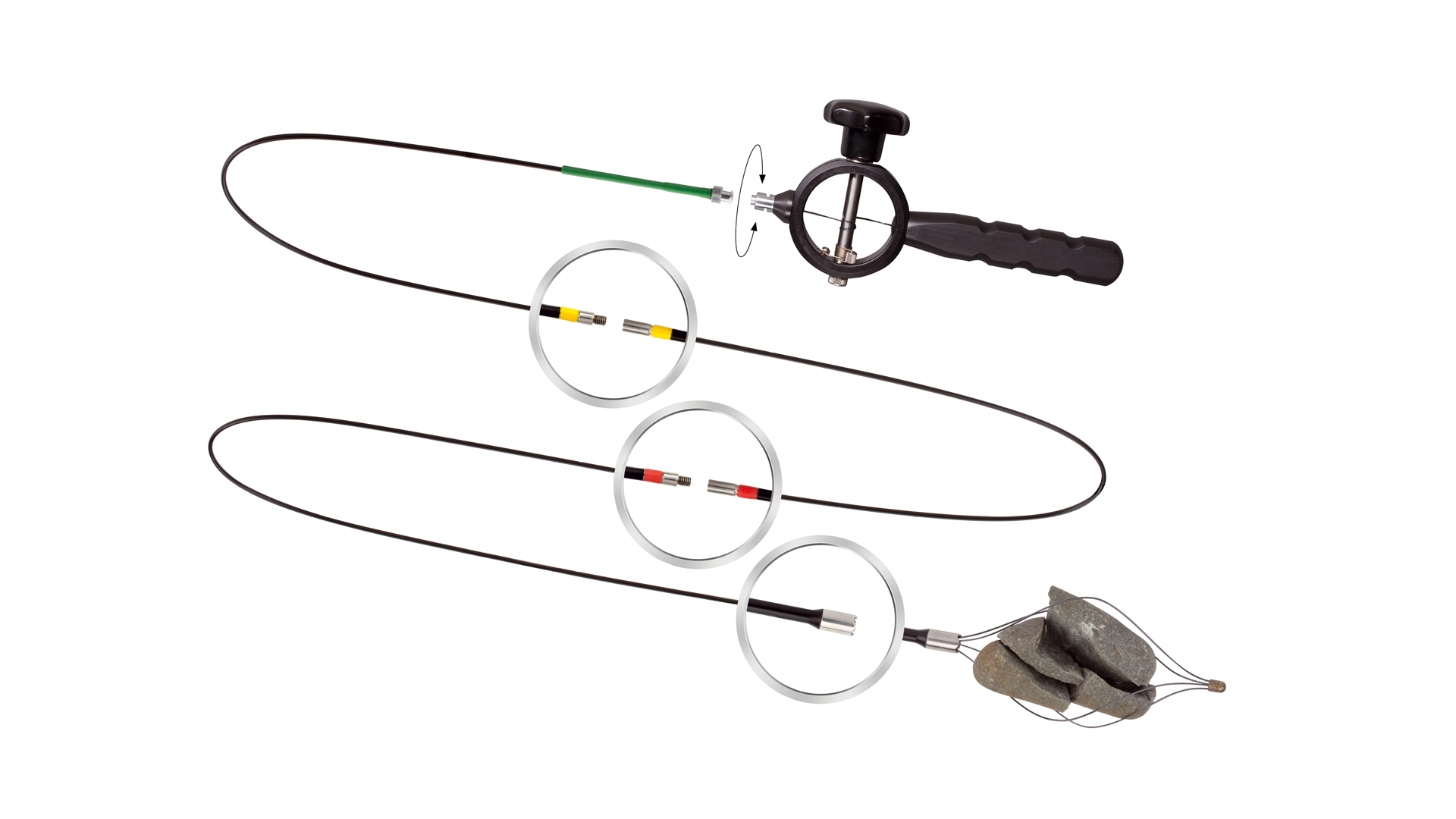Transendoscopic Lithotripsy
Kidney stones or nephrolites are crystalline deposits (urinary stones) of the renal pelvic calyx system. When entering the ureter, they become urethral stones and can cause colic. Colloquially, the terms kidney stone and ureteral calculus are often used synonymously, although incorrectly. Other names are renal calculus or renal calculus. A collection of many small kidney stones is also called kidney gravel. The medical term for kidney stone disease is nephrolithiasis.

Instruction
The principle of transendoscopic lithotripsy in three steps
If stone extraction is not successful after a papillotomy, it is necessary to perform a lithotripsy. The newly designed 3-part spiral spring from MTW-Endoskopie W. Haag KG enables transendoscopic, mechanical lithotripsy with a stone catcher (working length =/> 215 cm). Emergency lithotripsy without an endoscope is thus largely avoided.
123 Stonecrusher

















